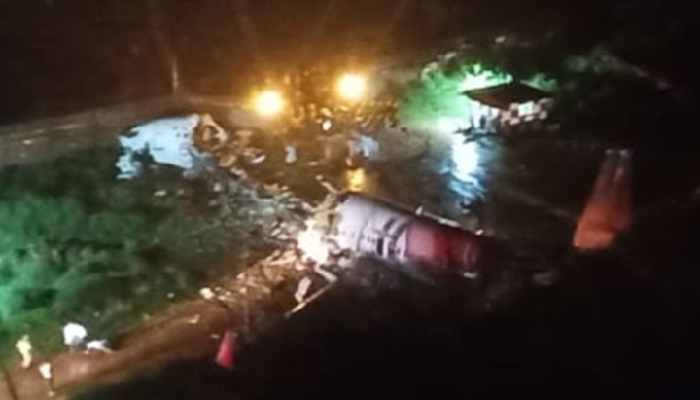New Delhi, Feb 23: Prime Minister Narendra Modi Saturday made a strong re-election pitch to corporate India as he drew contrasts between the governance styles of Congress and his party, saying competition for corruption in the previous regime had been replaced by highest growth rate and lowest inflation of post-liberalisation era.
Addressing the Economic Times' Global Business Summit here, Modi elaborated on his vision for making India a USD 10-trillion economy and the world's third largest is one where the country has countless startups and is a global leader in renewable energy sources and electric vehicles.
Back-breaking inflation, increasing current account deficit and higher fiscal deficit threatened macro-economic stability of the country just before the BJP-led NDA came to power in May 2014, he said.
Launching a blistering attack on governance under UPA, he said there was a "competition between ministries, a competition between individuals, a competition on corruption (and) a competition on delays."
"There was competition on who could do maximum corruption, there was competition on could do the fastest corruption, there was competition on who could do most innovation in corruption," he said, adding that there was competition on where more money could be made - in coal allocation or spectrum allocation, in commonwealth games or in defence deals.
"We all saw that and we also know who were the main players involved in this competition," he said.
This under the present regime, all this has been replaced by a competition to attract more investment and to build houses for the poor, he said.
There is a competition to see if all habitations are connected with road first or all homes with gas connection first, as well as a competition to get 100 per cent sanitation first, or 100 per cent electrification first, he asserted, adding that there is a competition between ministries and states on development for achieving targets.
"During 2014-19, the country would register an average growth of 7.4 per cent and the average inflation would be less than 4.5 per cent. Post liberalisation of the Indian economy, this will be the highest rate of average growth and lowest rate of average inflation witnessed during the period of any government," he said.
"It was said that governments cannot be pro-growth and pro-poor at the same time, but people of India are making it possible," Modi added.
"The country was facing total policy paralysis (before 2014). This was preventing the economy from reaching the level which it was worthy of. The global fraternity was worried about the health of this member of the fragile-five club. There was a perception of surrender to existing circumstances," he said.
But after 2014, hesitations have been replaced by hope, obstacles by optimism and issues by initiatives, he said. "Today change is clearly visible."
The Prime Minister said he wants India to become a USD 10-trillion economy and the third largest in the world.
India currently is a USD 2.5 trillion economy and the sixth-largest in the world.
"We want to make an India of countless startups. We want to lead the global drive towards renewable sources of energy. We want to give our people energy security. We want to cut down on import dependence. We want to make India a world leader in electric vehicles and energy storage devices.
"With these goals in mind, let us re-dedicate ourselves to create a New India of our dreams, he said.
Having missed the past three industrial revolutions, India, he said, is an active contributor to the fourth industrial revolution.
"What happened in the past is not in our hands, but what will happen in the future is firmly in our hands," he said recounting the steps taken by his government to improve the economy.
He credited the progress made to the support and partnership of the people of the country, saying the progress made since 2014 has given him confidence that nothing is impossible.
"Namumkin ab mumkin hai (impossible is now possible)," he said.
'Namumkin ab mumkin hai' is BJP's re-election slogan for the 2109 general elections.
"For decades, a narrative was made that certain things are just impossible in India. It was said that making a clean India was impossible, but the people of India are making it possible. It was said that a corruption-free government in India was impossible, but the people of India have made it possible.
"It was said that it is impossible to remove corruption from the process of giving people their dues, but people of India are making it possible. It was said that it is impossible for the poor to leverage the power of technology, but the people of India are making it possible.
"It was said that removing discretion and arbitrariness in policy making was impossible, but people of India are making it possible. It was said that economic reforms in India were impossible, but the people of India are making it possible. It was said that governments cannot be pro-growth and pro-poor at the same time, but people of India are making it possible," he said.
Highlighting his government's industry-friendly policies, he said a business with a turnover of up to Rs 40 lakh does not have to register for gods and services tax (GST), one with a turnover of up to Rs 60 lakh does not have to pay any income tax and a business with a turnover of up to Rs 1.5 crore is eligible for the composition scheme.







Comments
Definitely all changes visible GST,Demontsn,15 lakh,unemployment,make in pakoda,hatred, lynching,mob attack,writers and journalist death,pulwama.........ooooooh .....no end,only EVM vote BJP.10 trillion biggest Jumla.
Add new comment